-
 Bitcoin
Bitcoin $79,012.1761
-4.78% -
 Ethereum
Ethereum $1,570.4026
-12.09% -
 Tether USDt
Tether USDt $0.9994
-0.02% -
 XRP
XRP $1.9666
-7.46% -
 BNB
BNB $555.4328
-6.02% -
 USDC
USDC $0.9999
-0.01% -
 Solana
Solana $107.5201
-9.67% -
 Dogecoin
Dogecoin $0.1506
-10.27% -
 TRON
TRON $0.2315
-2.62% -
 Cardano
Cardano $0.5814
-10.27% -
 UNUS SED LEO
UNUS SED LEO $8.8602
-2.17% -
 Chainlink
Chainlink $11.3795
-10.04% -
 Toncoin
Toncoin $3.0063
-7.92% -
 Stellar
Stellar $0.2370
-5.38% -
 Avalanche
Avalanche $16.1395
-9.48% -
 Shiba Inu
Shiba Inu $0.0...01134
-7.55% -
 Sui
Sui $1.9135
-13.06% -
 Hedera
Hedera $0.1425
-11.59% -
 Polkadot
Polkadot $3.7145
-5.76% -
 MANTRA
MANTRA $5.9824
-4.31% -
 Bitcoin Cash
Bitcoin Cash $272.1059
-9.40% -
 Litecoin
Litecoin $71.2279
-13.11% -
 Dai
Dai $1.0000
-0.02% -
 Ethena USDe
Ethena USDe $0.9987
-0.05% -
 Bitget Token
Bitget Token $4.1866
-5.67% -
 Pi
Pi $0.5915
4.23% -
 Monero
Monero $200.3568
-5.71% -
 Hyperliquid
Hyperliquid $10.5427
-10.74% -
 Uniswap
Uniswap $5.1188
-11.73% -
 OKB
OKB $50.3711
-2.37%
What is a smart contract wallet? What are its advantages over traditional wallets?
Smart contract wallets enhance crypto security and flexibility, using blockchain for automated, conditional transactions without intermediaries.
Apr 04, 2025 at 09:43 pm
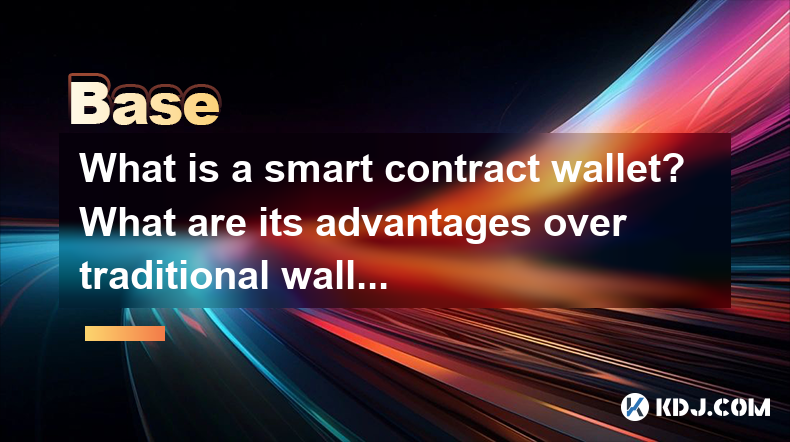
A smart contract wallet represents a significant evolution in the world of cryptocurrency, offering a new approach to managing digital assets. Unlike traditional wallets that rely on a single private key, smart contract wallets leverage the power of blockchain technology to provide enhanced security, flexibility, and functionality. At its core, a smart contract wallet is a self-executing contract with the terms of the agreement directly written into code, which resides on the blockchain. This allows for a wide range of automated actions and conditional transactions that can be executed without the need for intermediaries.
How Smart Contract Wallets Work
Smart contract wallets operate through a series of coded instructions that define how the wallet can be used. These instructions are stored on the blockchain, making them transparent and immutable. When a user wants to perform a transaction, the smart contract wallet checks if the conditions specified in the contract are met. If they are, the transaction is automatically executed. This can include actions like transferring funds, executing trades, or even managing multi-signature requirements.
To illustrate, consider a scenario where a user wants to send cryptocurrency to another party. In a traditional wallet, the user would simply sign the transaction with their private key. However, with a smart contract wallet, the user might set conditions such as a time delay before the transaction can be completed or require multiple signatures from different parties. This adds an additional layer of security and control over the user's assets.
Advantages Over Traditional Wallets
One of the primary advantages of smart contract wallets is their enhanced security. Traditional wallets are vulnerable to single points of failure, such as losing a private key or having it stolen. Smart contract wallets mitigate this risk by allowing users to set up multiple layers of security, such as multi-signature requirements or time locks. This means that even if one key is compromised, the funds remain secure.
Another significant advantage is flexibility. Smart contract wallets can be programmed to perform a wide range of functions automatically. For instance, users can set up recurring payments, automate investment strategies, or even create conditional transactions that only execute if certain market conditions are met. This level of automation can save time and reduce the risk of human error.
Additionally, smart contract wallets offer improved user experience. They can be designed to be more user-friendly, with interfaces that guide users through the process of setting up and managing their wallets. This can make cryptocurrency more accessible to those who may be intimidated by the technical aspects of traditional wallets.
Setting Up a Smart Contract Wallet
Setting up a smart contract wallet involves several steps, which can vary depending on the specific platform or service you choose. Here's a general outline of the process:
- Choose a Smart Contract Wallet Platform: There are several platforms available, such as Gnosis Safe, Argent, or Authereum. Research each option to find the one that best suits your needs.
- Create an Account: Sign up for an account on the chosen platform. This usually involves providing an email address and setting up a password.
- Set Up the Wallet: Follow the platform's instructions to set up your wallet. This may involve generating a new wallet address or importing an existing one.
- Configure Security Settings: Set up your desired security measures, such as multi-signature requirements or time locks. This step is crucial for ensuring the safety of your assets.
- Fund the Wallet: Transfer cryptocurrency to your new smart contract wallet. This can usually be done by sending funds to the wallet address provided by the platform.
- Start Using the Wallet: Once your wallet is set up and funded, you can begin using it to send and receive cryptocurrency, set up automated transactions, and more.
Use Cases for Smart Contract Wallets
Smart contract wallets are versatile and can be used in a variety of scenarios. For instance, decentralized finance (DeFi) applications often utilize smart contract wallets to facilitate complex financial transactions. Users can lend, borrow, or trade assets directly from their wallets, with the smart contract ensuring that all conditions are met before executing the transaction.
Another use case is inheritance planning. Smart contract wallets can be programmed to transfer assets to designated beneficiaries upon the occurrence of certain events, such as the death of the wallet owner. This can be done automatically, without the need for legal intervention, providing peace of mind for the wallet owner.
In the realm of business and organizational management, smart contract wallets can be used to streamline financial operations. Companies can set up wallets with multiple signatories, ensuring that transactions require approval from several parties before being executed. This can help prevent fraud and ensure that funds are managed responsibly.
Challenges and Considerations
While smart contract wallets offer many advantages, there are also some challenges and considerations to keep in mind. Security remains a top priority, as smart contracts can be vulnerable to bugs and exploits if not properly audited. It's essential to use reputable platforms and to thoroughly test any smart contracts before deploying them.
Another consideration is complexity. Smart contract wallets can be more difficult to set up and manage than traditional wallets, especially for users who are new to blockchain technology. It's important to take the time to understand how these wallets work and to seek out educational resources if needed.
Finally, regulatory compliance is an important factor. Depending on your jurisdiction, there may be legal requirements or restrictions on the use of smart contract wallets. It's crucial to stay informed about the regulatory environment and to ensure that your use of these wallets complies with all applicable laws.
Frequently Asked Questions
Q: Can smart contract wallets be used with any cryptocurrency?
A: Smart contract wallets are typically designed to work with cryptocurrencies that support smart contracts, such as Ethereum. However, some platforms may offer support for other cryptocurrencies as well. It's important to check the compatibility of your chosen wallet with the cryptocurrencies you wish to use.
Q: Are smart contract wallets more expensive to use than traditional wallets?
A: Smart contract wallets may incur additional costs due to the need to execute smart contracts on the blockchain. These costs, known as gas fees, can vary depending on the network's congestion and the complexity of the transactions. However, the enhanced security and functionality offered by smart contract wallets may outweigh these costs for many users.
Q: Can I convert a traditional wallet to a smart contract wallet?
A: It is generally not possible to directly convert a traditional wallet to a smart contract wallet. However, you can transfer your funds from a traditional wallet to a new smart contract wallet. This involves setting up a new smart contract wallet and then sending your cryptocurrency to the new wallet address.
Q: How do I recover my funds if I lose access to my smart contract wallet?
A: Recovery options for smart contract wallets can vary depending on the platform and the security measures you have set up. Some wallets offer recovery phrases or backup keys that can be used to regain access. It's important to follow the platform's guidelines for setting up and storing these recovery options securely.
Disclaimer:info@kdj.com
The information provided is not trading advice. kdj.com does not assume any responsibility for any investments made based on the information provided in this article. Cryptocurrencies are highly volatile and it is highly recommended that you invest with caution after thorough research!
If you believe that the content used on this website infringes your copyright, please contact us immediately (info@kdj.com) and we will delete it promptly.
- Pepe (PEPE) Weekly Performance Hints At Huge Surge
- 2025-04-07 04:15:13
- XRP Price Tanks 12.8% This Week — More Pain to Come?
- 2025-04-07 04:15:13
- XRP's Funding Rate Has Dropped to Negative 0.012%, a Level Last Seen When the Asset Traded Near $0.33
- 2025-04-07 04:10:13
- A major supply event is coming for the SUI token
- 2025-04-07 04:10:13
- Memecoin DEX PumpSwap Makes a Significant Impact, Attracting 700K Wallets and Facilitating 30M Swaps
- 2025-04-07 04:05:12
- Ronin Network (RON) Has Retraced Heavily This Year
- 2025-04-07 04:05:12
Related knowledge
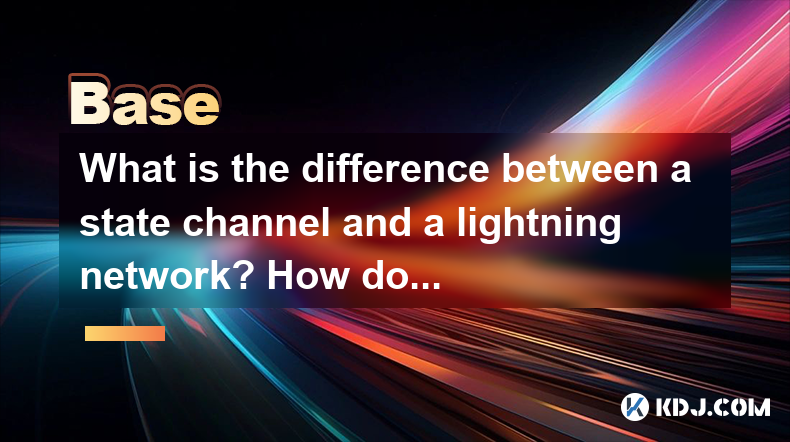
What is the difference between a state channel and a lightning network? How do they improve transaction efficiency?
Apr 05,2025 at 05:21pm
State channels and the Lightning Network are two significant technologies within the cryptocurrency ecosystem aimed at improving transaction efficiency on blockchain networks. Both solutions address the scalability issues of blockchain systems, particularly in handling a high volume of transactions quickly and with low fees. However, they operate differ...

What else can governance tokens do besides voting? Why do project parties have to issue one?
Apr 06,2025 at 06:42pm
Governance tokens have become a pivotal element in the decentralized ecosystem, serving functions that extend far beyond the simple act of voting. While voting is a crucial aspect of these tokens, allowing token holders to influence the direction and decisions of a project, there are numerous other roles that governance tokens play within the cryptocurr...
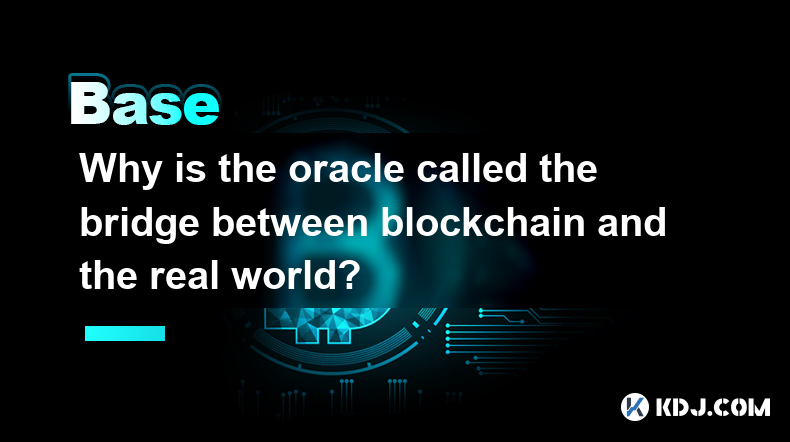
Why is the oracle called the bridge between blockchain and the real world?
Apr 04,2025 at 04:00am
The concept of an oracle in the cryptocurrency and blockchain world is crucial for understanding how these decentralized systems interact with external data. The oracle is often referred to as the bridge between blockchain and the real world because it serves as a vital intermediary that fetches, verifies, and transmits off-chain data to the on-chain en...
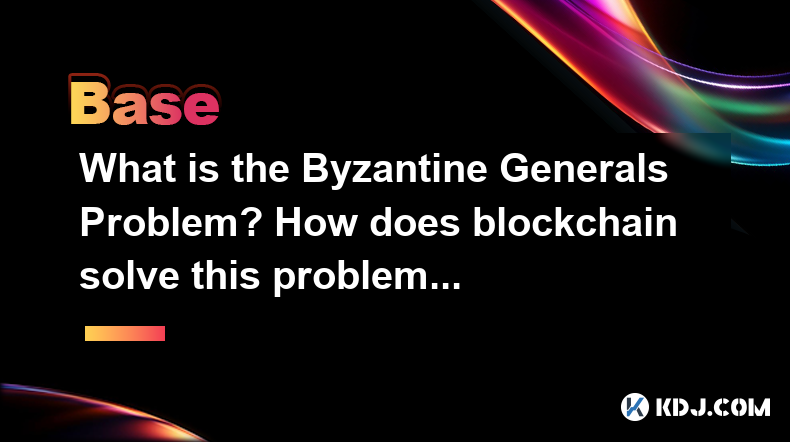
What is the Byzantine Generals Problem? How does blockchain solve this problem?
Apr 05,2025 at 06:29am
The Byzantine Generals Problem is a classic problem in the field of distributed computing and computer science, which has significant implications for the reliability and security of decentralized systems, including blockchain technology. This problem is named after a hypothetical scenario involving several generals of the Byzantine army who must coordi...
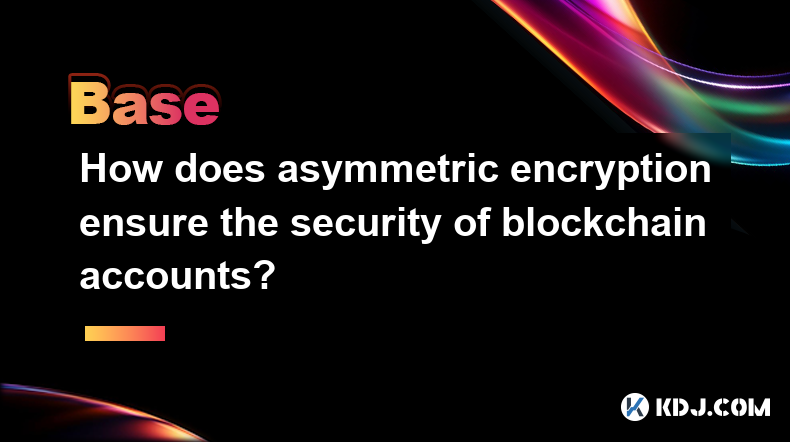
How does asymmetric encryption ensure the security of blockchain accounts?
Apr 06,2025 at 07:50am
Asymmetric encryption plays a critical role in securing blockchain accounts by providing a robust method of safeguarding private keys and ensuring secure transactions. This article delves into how asymmetric encryption works and why it is indispensable for the security of blockchain accounts. What is Asymmetric Encryption?Asymmetric encryption, also kno...
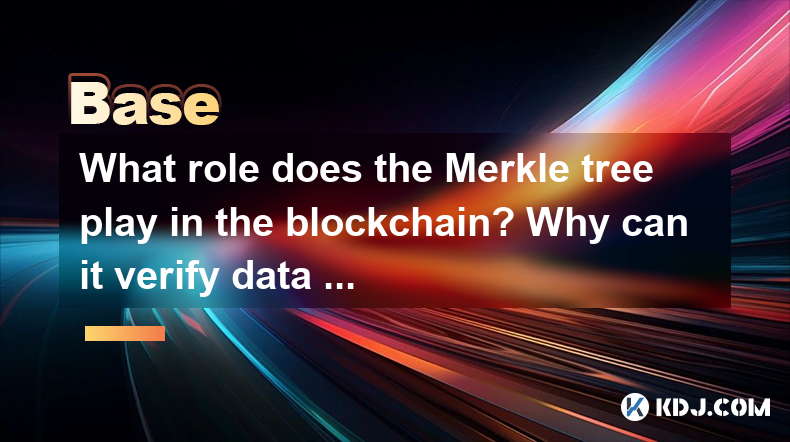
What role does the Merkle tree play in the blockchain? Why can it verify data integrity?
Apr 04,2025 at 01:29pm
The Merkle tree plays a crucial role in the blockchain, primarily due to its ability to efficiently and securely verify data integrity. This article will delve into the structure of a Merkle tree, its implementation in blockchain, and how it ensures the integrity of data. Understanding the Structure of a Merkle TreeA Merkle tree, also known as a hash tr...

What is the difference between a state channel and a lightning network? How do they improve transaction efficiency?
Apr 05,2025 at 05:21pm
State channels and the Lightning Network are two significant technologies within the cryptocurrency ecosystem aimed at improving transaction efficiency on blockchain networks. Both solutions address the scalability issues of blockchain systems, particularly in handling a high volume of transactions quickly and with low fees. However, they operate differ...

What else can governance tokens do besides voting? Why do project parties have to issue one?
Apr 06,2025 at 06:42pm
Governance tokens have become a pivotal element in the decentralized ecosystem, serving functions that extend far beyond the simple act of voting. While voting is a crucial aspect of these tokens, allowing token holders to influence the direction and decisions of a project, there are numerous other roles that governance tokens play within the cryptocurr...

Why is the oracle called the bridge between blockchain and the real world?
Apr 04,2025 at 04:00am
The concept of an oracle in the cryptocurrency and blockchain world is crucial for understanding how these decentralized systems interact with external data. The oracle is often referred to as the bridge between blockchain and the real world because it serves as a vital intermediary that fetches, verifies, and transmits off-chain data to the on-chain en...

What is the Byzantine Generals Problem? How does blockchain solve this problem?
Apr 05,2025 at 06:29am
The Byzantine Generals Problem is a classic problem in the field of distributed computing and computer science, which has significant implications for the reliability and security of decentralized systems, including blockchain technology. This problem is named after a hypothetical scenario involving several generals of the Byzantine army who must coordi...

How does asymmetric encryption ensure the security of blockchain accounts?
Apr 06,2025 at 07:50am
Asymmetric encryption plays a critical role in securing blockchain accounts by providing a robust method of safeguarding private keys and ensuring secure transactions. This article delves into how asymmetric encryption works and why it is indispensable for the security of blockchain accounts. What is Asymmetric Encryption?Asymmetric encryption, also kno...

What role does the Merkle tree play in the blockchain? Why can it verify data integrity?
Apr 04,2025 at 01:29pm
The Merkle tree plays a crucial role in the blockchain, primarily due to its ability to efficiently and securely verify data integrity. This article will delve into the structure of a Merkle tree, its implementation in blockchain, and how it ensures the integrity of data. Understanding the Structure of a Merkle TreeA Merkle tree, also known as a hash tr...
See all articles





















































































